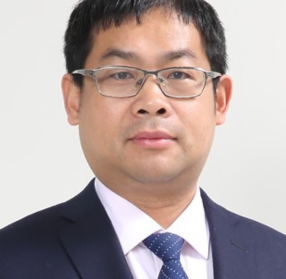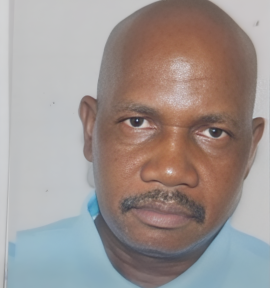Editorial Board
The Editorial Board of the journal is responsible for maintaining the quality and integrity of the journal's content. The board members are experts in their respective fields and play a crucial role in the peer review process, ensuring that all articles published meet the highest academic standards.
The Editorial Board is committed to upholding the principles of academic excellence, transparency, and ethical publishing practices. They work closely with authors, reviewers, and the editorial team to facilitate a smooth publication process.
Editor-in-Chief

Huan Qing Zhang PhD [View Profile]
Editor-in-Chief [Instituional Profile Link]Department: Department of Crop Protection
Affiliation: Zhejiang Agriculture and Forest University, Hangzhou, Zhejiang
Designation: Plant Pathologist
Email: cqzhang@zafu.edu.cnCountry: China
Prof. Chuanqing Zhang is s Plant Pathologist at Department of Crop Protection, College of Advanced Agriculture Sciences, Zhejiang Agriculture and Forest University, China, since 2011. He received PHD in Pesticide Science from Nanjing Agriculture University, China in 2005. During 2005 to 2007, he worked as a postdoc at College of Agriculture, Zhejiang University. His research is focused on plant pathogenic fungi, plant disease management, and fungicide resistance funded by national, province and other agencies.
Editorial Members

Eugenia Maria Antunes de Andrade Ph.D
Editorial Member [View Profile]Affiliation: National Institute for Agricultural and Veterinary Research INIAV
Department: Higher Institute of Agronomy ISA Biological Sciences
Designation: Senior Scientist
Email: eugenia.andrade@iniav.ptCountry: Portugal
Dr. Eugénia Maria Antunes de Andrade is a Portuguese researcher specialized in plant molecular biology, plant pathology, agricultural biotechnology, and molecular diagnostics. She obtained her Ph.D. in Agronomic Engineering from Instituto Superior de Agronomia (ISA), Universidade Técnica de Lisboa, with doctoral research conducted at the Max Planck Institute for Plant Breeding Research, Germany.
Her research focuses on molecular detection methods, plant–pathogen interactions, GMO detection and regulation, nematology, mycotoxins, genome editing, and biosensor development for plant health monitoring.
She has served as Guest Editor for the Journal of Plant Pathology and as Guest Editor of the Special Issue “Molecular Breeding in Horticultural Plants” in MDPI journal Plants.
Dr. Andrade has an H-index of 10 (Web of Science) and 12 (ResearchGate) as of November 2025 and has contributed extensively to indexed international journals, book chapters, technical reports, and European scientific initiatives.

Musa Decius Saffa PhD
Editorial Member [View Profile]Affiliation: Njala University, Bo City in the Towama and Kowama villages
Department: Department of Crop Protection
Designation: Lecturer
Email: musa.saffa@njala.edu.slCountry: Sierra Leone
Musa Decius Saffa is a Sierra Leonean agricultural scientist and lecturer at Njala University, where he has been teaching and conducting research since 2016. With a strong academic background in crop protection, he holds a BSc (Hons), MSc, and has recently completed his PhD in Crop Protection at Njala University. His work focuses primarily on plant health, including the management of agricultural pests and diseases, sustainable crop production, and integrated pest control strategies.
Musa has contributed to the scientific community with over a dozen publications in reputable journals, addressing issues such as the effect of green manure on maize productivity, pest infestation in local yam genotypes, and seasonal variations in cassava disease incidence. He has actively participated in agricultural seminars and workshops and served as a laboratory assistant with WAVE Sierra Leone. His commitment to agricultural advancement is matched by his dedication as an ordained minister since 2016.
Fluent in English, Mende, and Krio, Musa is passionate about improving food security and promoting environmentally sound agricultural practices across Sierra Leone and beyond.

Alieu Mohamed Bah PhD
Editorial Member [View Profile]Affiliation: Njala University, Bo City in the Towama and Kowama villages
Department: Department of Crop Science
Designation: Associate Professor
Email: abah@njala.edu.slCountry: Sierra Leone
Dr. Alieu Mohamed Bah is an Associate Professor of Crop Science and currently serves as the Deputy Vice Chancellor at Njala University, Sierra Leone. He holds a Ph.D. in Crop Science from Zhejiang University, China, an M.Sc. in Agricultural Education, and a B.Sc. in Agricultural Education from Njala University. With over two decades of academic and professional experience, Dr. Bah has held several leadership roles, including Head of the Crop Science Department and Dean of the School of Agriculture.
Dr. Bah is an accomplished researcher in areas such as plant stress physiology, organic soil amendments, and varietal improvement. He has published over 25 scientific articles in peer-reviewed journals and has supervised numerous undergraduate, MPhil, and Ph.D. theses. He has also played a lead role in major national and international agricultural research projects, especially in food safety, rice breeding, and mutation breeding under the IAEA-AFRA initiatives.
In addition to his academic contributions, Dr. Bah has been actively involved in national development projects, consultancy, curriculum development, and capacity building. He has served as a consultant for various organizations including BBC Media Action, COOPI, IFAD, and AAH. He also coordinated several donor-funded initiatives focused on seed production, food security, and sustainable agriculture.
Dr. Bah is a member of several professional bodies including the African Crop Science Society and the Sierra Leone Association of Journalists. His service includes editorial board memberships, national agricultural boards, and leadership in educational and community development institutions.

Dr Wen-Hsin Chung PhD
Editorial Member [View Profile]Affiliation: Department of Plant Pathology, National Chung Hsing University, Taichung, Taiwan, ROC
Department: Department of Plant Pathology
Designation: Professor
Email: wenchung@nchu.edu.twCountry: Taiwan
Dr. Wen-Hsin Chung is a Professor in the Department of Plant Pathology at National Chung Hsing University, Taiwan. He earned his Ph.D. in Agricultural Sciences from Tsukuba University, Japan, following his M.S. and B.S. degrees from NCHU. Over the years, Dr. Chung has held several leadership positions, including Director of the Agricultural Extension Center and Chair of the Master Program for Plant Medicine and Good Agricultural Practice. His career includes extensive research and administrative experience, such as serving as Director of the Agricultural Products Approval and Certification Center and as a researcher at the Asia Vegetable Research and Development Center (AVRDC).

Dr Seema Ramniwas PhD
Editorial Member [View Profile]Affiliation: Marwadi University, Rajkot, Gujarat
Department: Department of Plant Protection
Designation: Associate Professor
Email: seema.rani@marwadieducation.edu.inCountry: India
Dr. Seema Ramniwas is an Associate Professor at Marwadi University, Rajkot, with extensive experience in genetics and evolutionary physiology. She has worked on the ecophysiology of water loss regulation, fitness-related traits in insects, sustainable management of fruit fly pests, and host-pathogen interactions. She has received several prestigious fellowships, including INSA-DST INSPIRE Faculty Fellowship, DST Women Scientist Fellowship, and Postdoctoral Fellowship from UGC. Dr. Ramniwas has also been recognized with international travel grants to attend conferences in the USA and Japan.




